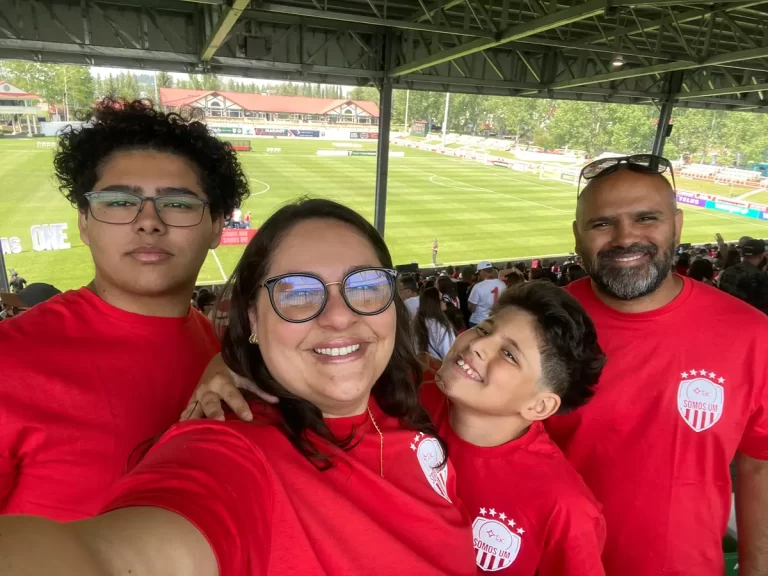
Who of us hasn’t felt shame at some point in our lives? That feeling that we need to hide … that something about us just isn’t right … like we got caught, and we need to do something that will change things; we need to hide or protect ourselves. Even in the last couple of weeks, when I was working with some highly educated seminary professors, I found myself feeling a little bit out of my element, shall we say – feeling some shame. Shame is pretty common.
What is Shame?
Let’s start with bringing some definition to shame as we try to understand it. Merriam Webster offers these definitions of shame as a noun:
Shame (shām): a painful emotion caused by consciousness of guilt, shortcoming, or impropriety. A condition of humiliating disgrace or disrepute. Something to be regretted.
I sometimes describe shame as “I am bad” and guilt as “I have done something bad.” Shame tends to speak to our identity – a question of who we are rather than what we have done. We believe we’re not good enough, that we’re a mistake, we’re broken. Sometimes you can hear others’ shame by how they refer to themselves; in statements like “I’m so stupid!” … “I can’t ever do anything right!” … “I’m such a klutz!” … “I can’t read!” … “I’m never good enough!” … “I’m such a loser!” Sometimes we speak lies like these about ourselves when we feel like we don’t measure up.
Where does shame come from?

We know that Adam and Eve were in the garden naked and unashamed (Genesis 2:25). They were free and fully vulnerable because they had nothing to hide. After they disobeyed God they hid themselves because they felt naked (exposed) and ashamed; something was now not as acceptable, and they were afraid if God saw them He would see their flaw and perhaps no longer accept them – maybe even reject them. So what happened?
Today, psychologists, psychiatrists, and researchers are addressing the topic of shame. Consider checking out Dr. Curt Thompson’s book, The Soul of Shame, and the research on vulnerability by Brene Brown, who, in a TED talk titled Listening to Shame, said, “empathy’s the antidote to shame.” Thirty years ago psychologist Dr. Larry Crabb also talked about shame, explaining that when the serpent said in Genesis 3:1, “Indeed, has God said, ‘You shall not eat from any tree of the garden’?” he was putting doubt into Adam’s and Eve’s minds … making them think maybe God didn’t really say what they thought He had said. Further, verses 4 and 5 read, “The serpent said to the woman, ‘You surely will not die!For God knows that in the day you eat from it your eyes will be opened, and you will be like God, knowing good and evil.’” This caused greater questions about whether God is really being truthful, whether He really has their very best in mind; encouraging them to be independent from God, to be like God – knowing what is good and evil – so they would no longer need to depend on Him. After all, He may not really have their best in mind.

After they ate the fruit from the tree, verse 7 says, “Then the eyes of both of them were opened, and they knew that they were naked; and they sewed fig leaves together and made themselves loin coverings.” Something no longer was acceptable to themselves; they believed they were no longer acceptable to God. Later, in verse 10, Adam says to God, “I heard the sound of You in the garden, and I was afraid because I was naked; so I hid myself.” He was now afraid, he felt fear, he felt less-than, that he wasn’t good enough, that something about him was no longer right. Adam felt ashamed.
Dr. Crabb explains that sin is a combination of our desire for independence and questioning our identity so we question our acceptance and value. When we question our identity as a child of God, we feel like we have to work to prove our value and acceptance. This makes it difficult to rest in the truth that we are loved by God and that nothing can change that. Secondly, sin often reflects our desire to be independent of God because we question whether He is truly good and really has our best in mind. We question if we can trust Him. This leads us to feeling we have to figure out how we can prove or earn our value; we look for what else we can trust in to help us know we’re valuable and accepted. And because we become suspicious of God’s goodness, we tend to believe we can only depend on ourselves to guarantee our safety and identity. Therefore, we figure out how to make life work for us. We trust in other things we believe will tell us we’re acceptable – we begin to trust in idols. Isaiah 42:17 says, “But those who trust in idols, who say to images, ‘You are our gods,’ will be turned back in utter shame.” Isaiah 44:9-11 goes on to say those who make idols will be put to shame. Dr. Crabb suggests that in moments we feel shame, we have a great opportunity to take a step back and ask ourselves what (or whom) we’re putting our trust in to tell us we’re acceptable. Shame exposes what (or whom) our idols have become, and can reveal where we don’t trust God for our identity. Further, if we don’t catch ourselves, it’s not uncommon that shame pushes us towards self-contempt, self-loathing and sometimes a contempt for others, too. Then we tend to work very hard at either self-improvement or protecting ourselves in hopes we’ll eventually feel the value we need. He refers to this as living kind of like the Pharisees in the Bible – keeping all the rules to make ourselves acceptable by what we do and what we have.
What happened to our identity?
So where did we pick up this idea that we’re not acceptable? We were created with a desire, a thirst for relationship with God and with people:
“O God, You are my God, earnestly I seek You; my soul thirsts for You, my body longs for You … (Psalm 63:1)
“My soul yearns for You in the night; in the morning my spirit longs for You.” (Isaiah 26:9)
“Jesus replied: ‘Love the Lord your God with all your heart and with all your soul and with all your mind.’ This is the first and greatest commandment. And the second is like it: ‘Love your neighbour as yourself.’”(Matthew 22:37)
We were designed to live as people who enter into deep relationship with both God and others. There’s something inside us that calls us to respond to Him. We need people; we were designed to live in community!
“It is not good for the man to be alone. I will make him a helper suitable for him.” (Genesis 2:18)
“… together withallthe saints … that you may know how wide … long … high … deep is the love of Christ.” (paraphrased from Ephesians 3:17b-19)
We need each other to grasp and experience the quality of Christ’s love for us.
We were created to live in relationship with others, to live interdependently; and the primary people in our lives help us understand who we are, who Jesus is, and who we are in Jesus. As children, we’re like open books, and depend on our primary caregivers to help us understand we’re loved – just because – and we have something to offer the world. However, no primary caregiver, no mother or father, sibling, friend, or leader in our life can always understand what it is we want or need; nor are they always able to help us deal with things we can’t have in ways that don’t cause us to question our acceptableness, our value, and whether we can handle that reality. When things happened to us as children we evaluated them; and we came up with belief systems about ourselves, others, and our world, based on questions like: Am I good enough? Are they safe? Can I handle this pain? We did all of this from the mindset of a child, sometimes forming beliefs around our identity that weren’t true according to how God sees us and how He created us. We came to believe lies that still hold us captive as adults. But Isaiah 6:1b tells us what Jesus came to do for us: “He has sent Me (Jesus) to bind up the brokenhearted, to proclaim freedom for the captives and release from darkness for the prisoners.”
Addressing our shame so we can move past it
Let me suggest 3 things that are helpful:
- It’s important that we live in community, in relationships that remind us who we are. We all have the tendency to ‘leak’ – to forget who we are in the Lord. Having some imperfect but committed people in our lives who love us in ways the Lord loves us helps us deal with the question of shame that sometimes gets really loud for us. In our family and with close friends, when we celebrate someone’s birthday we take time to go around the table and tell the person what we see in them, what their strengths are, and what we see as their gifting. Encouraging with our words and “calling out the gold” helps them know what they have to offer, who they are (identity), and further help them to feel accepted and valued. Words said in love are of great value when we’re struggling with shame.
- Focus on things that remind us who we are and what God has for us. The apostle Paul encourages us to renew our minds in Romans 12:1-2. Here’s a few ways we can renew our minds:
- Take some quiet time for reading the Bible and ask God how what you read applies to your day
- Turn on some worship music that reminds you of who God is and who you are in Him
- Take time to quiet yourself and rest in Him – stop the working, the performing, the hiding
- Use our emotions to better understand what’s going on, and grow our self-awareness. I tell the people that come to my office that our emotions are like windows to the soul; they tell us what is true, what we would like, and what we believe to be true. When you feel shame, be intrigued as to why you’re feeling it in that moment. What’s going on in the room? What would you like or desire? What are your emotions telling you that you believe to be true? When you feel shame, whom have you put in a place in your life whose acceptance determines whether you believe you’re acceptable/valuable; whom or what have you idolized?
Shame is common for most of us. The question is, do we recognize it for what it is – a misunderstanding of identity? We’re made in the image of God and in Him we have our identity and so have nothing to prove regarding our acceptance and value. We are not bad, but we have done bad things and so we’re guilty. Christ’s work on the cross has taken care of the guilt of our sins. If we’ve accepted what Christ has done for us our guilt is paid for; nothing can change our being His children.
I invite you to continue to understand your shame so you can walk towards great freedom in Christ. You have nothing to hide.
There is no fear in love. But perfect love drives out fear, because fear has to do with punishment. The one who fears is not made perfect in love.” (I John 4:18)
Christ’s love and work has set us free!

Written by Kelvin Block
Kelvin Block Counselling Service



